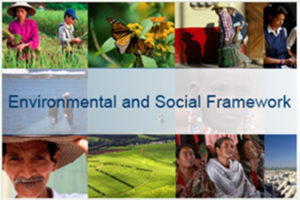
As part of the so-called Third Phase of consultations on the revisions to its environmental and social safeguard policies, the World Bank held a meeting in February 2016 in Addis Ababa on its proposed indigenous peoples policy, known as ESS7. The meeting was attended by representatives from several governments, including South Sudan, Kenya and Tanzania, as well as UN mechanisms on indigenous peoples and two civil society organizations.
Following the meeting, the Bank drafted a summary document of what was discussed, claiming expressions of “broad acceptance” among the participants in regard to a few different issues. One of these issues was free, prior and informed consent (FPIC). According to the Bank, there was “broad acceptance that the outcome of the FPIC process needed to be operationally defined consistent with the current approach under OP 4.10 where the outcome is broad community support.”
On 20 May 2016, the UN Special Rapporteur on the rights of indigenous peoples, the Chairperson of the Expert Mechanism on the Rights of Indigenous Peoples, and the Chairperson of the UN Permanent Forum on Indigenous Issues (collectively the UN Mechanisms) wrote a letter to Bank President Jim Kim clarifying that the summary document was inaccurate. The UN Mechanisms noted that “it was never the objective of the [meeting] to generate interpretive comments on international standards. … Hence, it cannot be concluded that there was ‘broad acceptance’ among the participants of defining the outcome of FPIC as ‘broad community support'” (emphasis in original).
Although the clarification is an embarrassing one for the Bank, the letter does more than simply correct a mistake. The UN Mechanisms express serious concern regarding the use of the term “broad community support”, or BCS, in ESS7 in regard to FPIC. They note that BCS “is an ambiguous concept with no legal basis under international law” and that the Bank’s own internal review on the implementation of its existing indigenous peoples policy shows that BCS “has failed to ensure good faith consultation leading to outcomes” that guarantee respect for indigenous peoples’ rights. The letter notes a number of additional problems with the concept of BCS and discusses the principle of FPIC more broadly. It calls on the Bank to “adhere to its international responsibilities and support FPIC over BCS in the final version of ESS7.”
The letter by the UN Mechanisms come as the final draft of the new environmental and social safeguard policies goes to the Bank Board of Directors for review and approval. It is anticipated that the new safeguard policies will be approved later in 2016.

